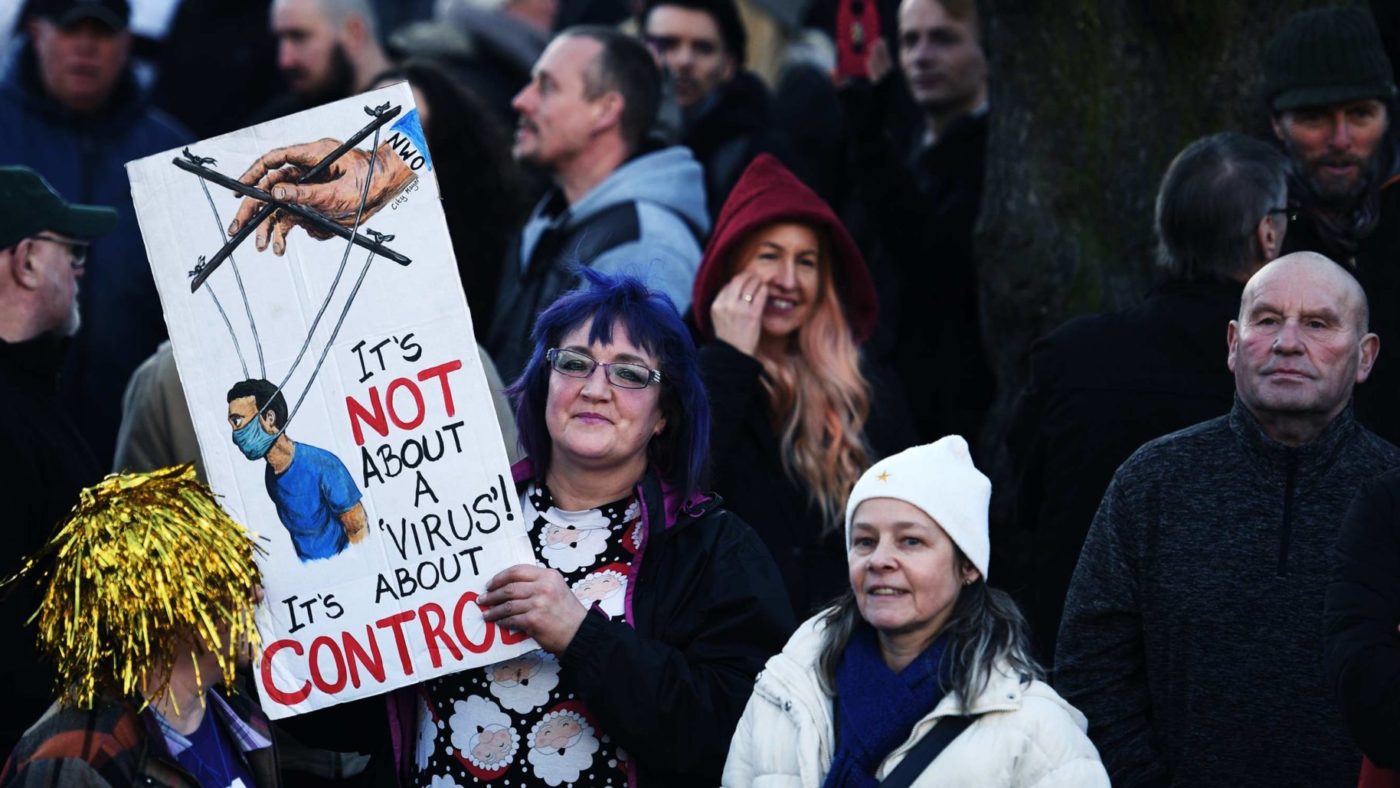What is a lockdown sceptic?
It’s an innocuous label which hides a range of arguments and viewpoints. From those who question the efficacy of restrictions, to those who accept that lockdowns may slow the virus, but wonder if the costs are worth it, and civil libertarians who argue that a public health crisis, however serious, is no excuse to institute a police state. Some may have vehemently opposed last year’s restrictions, but agree that the new variant and a brisk vaccine rollout means this lockdown is a price worth paying for a return to normality.
A fierce debate is a healthy, necessary part of living in a democracy, and for those of a liberal bent the alacrity with which much of the public have accepted lockdowns has been alarming. Infringements on our liberties are a serious matter, and people who oppose lockdowns shouldn’t be lumped into a big ‘sceptic’ basket with the lunatics who think Bill Gates wants to microchip your nan.
But cranks and conspiracy theorists there undoubtedly are. In a recent Quillette piece, the IEA’s Christopher Snowdon – no lockdown enthusiast, he – has acutely documented the way reasonable arguments against lockdowns have been hijacked by misinformation and dishonesty.
Some of the crankery stems from statistical incompetence, such as miscalculating the infection fatality rate, or the numerous claims that a rise in cases was just down to false positives. We can add to the list the out and out fiction that excess deaths in 2020 were no higher than any other year (they were). Other wayward predictions, like that the pandemic was “over” in the summer and there would be no second wave, could charitably be ascribed to wishful thinking. (Full disclosure, I was guilty of indulging in a bit of that back in September.)
Then there is the out-and-out disinformation, such as people posting fake photos of empty hospital wards to prove there is some grandiose conspiracy at work (which the entire NHS is somehow in on).
Why do people lap this kind of thing up, however demonstrably false the claims? Snowdon puts it down to despair, abetted by many people’s lack of confidence with statistics. I would add to that mix an even more basic human emotion: embarrassment.
Whether you’re a pundit or a punter, if you’ve spent months telling people a disease isn’t really a threat, only to see cases spike and the death rate climb again, admitting you’re wrong takes quite a bit of bravery. When you’ve become part of a new online tribe, it probably feels almost existential to part company with it. Far easier to simply move on to a new critique or fantasy claim than admit that events have proven your previous one wrong.
The good news is that the Covid tribalism that has spawned all this is a time-limited minority pursuit. It’s hard to see the Sceptics vs Lockdowners debates raging on once the worst of the pandemic is over, which is why I don’t think Nigel Farage’s anti-lockdown Reform UK has much chance of success. Of course, there will still be skirmishes over whatever restrictions remain, and small corners of the internet demanding that we string up ‘Covid traitors’, but they will be in an even smaller minority than now.
And with plans to vaccinate the entire over-18 population by the end of June, we can all look forward to a time when we’ve stopped arguing about the R number or the IFR and can get back to bickering about Brexit.
Click here to subscribe to our daily briefing – the best pieces from CapX and across the web.
CapX depends on the generosity of its readers. If you value what we do, please consider making a donation.


